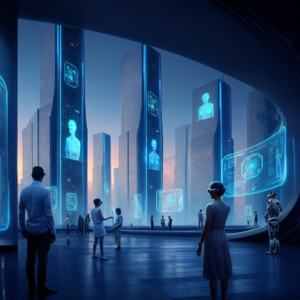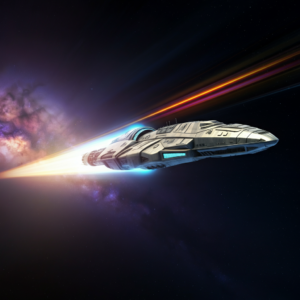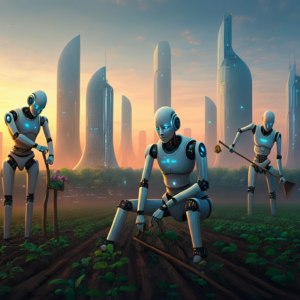Free will is a cornerstone of human thought, embedded in our sense of morality, law, and identity. But what if free will is an illusion? If our choices are predetermined by biology, physics, or fate, how would that reshape our understanding of life and society? Let’s delve into two compelling scenarios that examine a world without free will.
Possibility 1: Society Accepts Determinism
If humanity universally accepted that free will doesn’t exist, it could lead to profound changes in how society functions. A deterministic worldview suggests that every action is the result of prior causes, leaving no room for true autonomy. This belief could ripple through legal systems, ethics, and personal relationships.
Impacts on Law and Justice
- Reformed Justice Systems: Without the notion of free will, criminal behavior would be seen as the inevitable outcome of genetics, environment, and circumstances. Prisons might shift from punitive institutions to rehabilitation centers, focusing on reforming the conditions that led to criminal acts.
- Blame and Responsibility: Concepts like blame and guilt could lose their significance. Society might focus on collective accountability, addressing systemic issues rather than individual failings.
- Predictive Policing: Advanced algorithms could predict criminal behavior based on patterns, raising ethical questions about privacy and pre-emptive actions.
Impacts on Personal Relationships
- Compassion and Empathy: Recognizing that people’s actions are not freely chosen might foster greater empathy and reduce conflicts.
- Challenges in Trust: Without free will, trust in commitments and promises might erode, as choices are seen as inevitable rather than intentional.
This deterministic perspective could lead to a more understanding but also more impersonal society. While compassion might increase, the loss of individual agency could make relationships feel transactional or hollow.
Possibility 2: Humanity Resists Determinism
Despite evidence to the contrary, humanity might resist accepting a deterministic reality. The belief in free will is deeply ingrained and might persist as a psychological necessity for meaning and purpose.
Impacts on Culture and Philosophy
- Existential Coping Mechanisms: Even in a deterministic framework, people might embrace the illusion of choice as a way to find purpose. Philosophies like existentialism, which emphasize creating meaning despite inherent absurdity, could gain traction.
- Art and Literature: Creative expressions might flourish as humanity wrestles with the tension between determinism and perceived autonomy. Stories about rebellion against fate could resonate deeply.
Impacts on Science and Technology
- Focus on Brain Research: If free will is a construct, neuroscience might focus on decoding how deterministic processes influence decision-making. Technologies that manipulate or enhance choices could emerge.
- Ethical Dilemmas: The ability to influence decisions through external means, like brain stimulation or genetic modification, might raise concerns about authenticity and control.
Resisting determinism might preserve humanity’s sense of identity and drive, but it could also lead to cognitive dissonance and denial of scientific truths.
The Ripple Effects
Both scenarios present challenges and opportunities for humanity. Accepting determinism might lead to systemic improvements in justice and empathy but at the cost of individuality and personal responsibility. Resisting determinism could maintain a sense of agency and creativity but risk stagnation in our understanding of the human condition.
Conclusion
Whether free will exists or not, the question itself forces us to confront the essence of what it means to be human. Are we the authors of our destinies, or merely characters in a script written by nature and nurture? This exploration is not just philosophical but profoundly practical, shaping how we approach ethics, governance, and relationships.
What do you think? Is free will an illusion we must embrace, or can we face a deterministic reality without losing our humanity?







